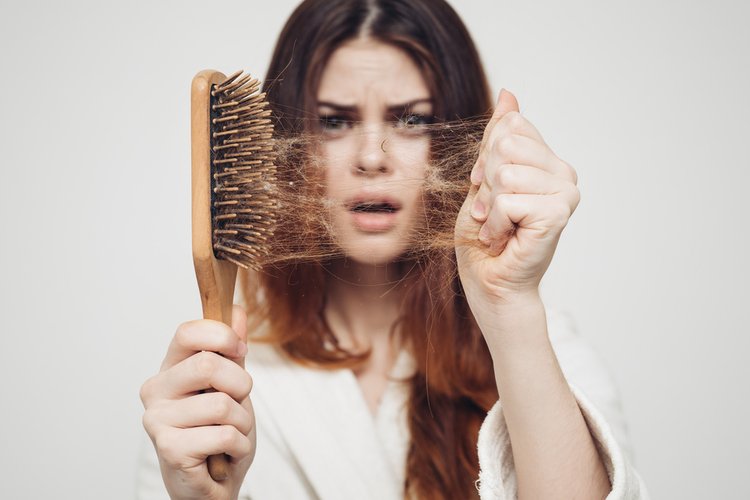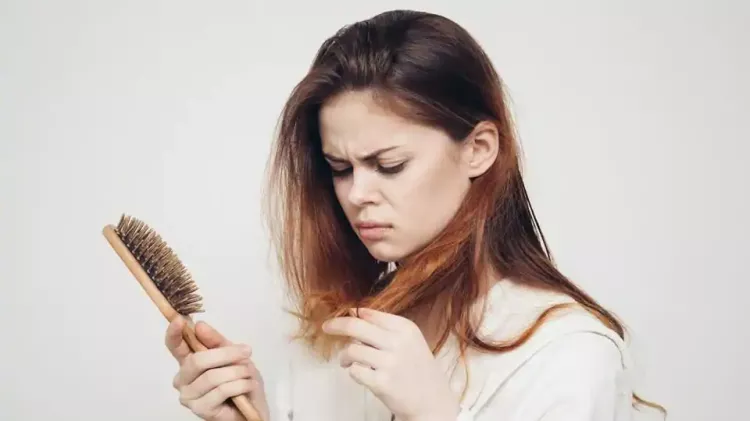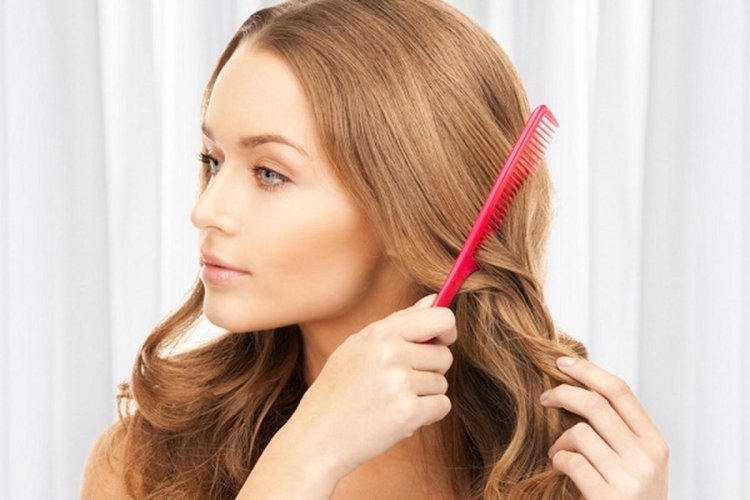Hair Keeps Falling Out? - What's The Reasons And How To Stop Hair Loss?
Kanchana Ngan |Feb 28, 2019
Hair loss is one of the most annoying and scary things to women. To improve the situation, here we provide possible reasons and methods to fix it.
- Dry Hair Treatment For Men: How To Keep Your Mane Nice And Healthy Always
- 5 Simple Hair Care Tips You Should Try For Navratri 2019
- Tips And Tricks To Keep Your Skin And Hair Healthy In Monsoon
Hair shedding seems to be an inevitable part of life, especially for women. You may find it extremely annoying when seeing much of it on the floor or being stuck in the shower drain, vacuum cleaner, etc. However, it is a typical symptom for everybody. It is estimated that there are around 80 strands lost per day on average. If this number becomes bigger and bigger, also your hair doesn't seem to grow back, it's time you should pay great attention to hair loss.

The thing is, it's hard to deal with issues related to hair, both the reasons or possible solutions. Understanding your hardship and confusion, below we provide some sharing from Anabel Kingsley, a respected leading Trichologist at the Philip Kingsley Clinic (London).
According to her, hair loss is such a common problem for women, because at least 1 in 3 females has to suffer from this symptom at some points in a lifetime. So the first thing to remember is not to freak out. Stay calm and read the following information carefully; you can figure out a proper way to solve the matter.
Different types of hair loss
Genetic
If you see a gradual and constant reduction in hair volume, you may be genetically exposed to the symptom. As explained by Anabel Kingsley, hair follicles are sometimes sensitive to male hormones. This sensitivity causes some of the existing hair to shrink gradually, then produce a new layer with shorter yet finer ones.
Reactive
You may rapidly imagine right from its name. Responsive type reduces the amount of hair because of a trigger, or in other words, impacts from other body parts. Detailedly, the problem is a result of internal imbalance or stress, such as nutritional deficiency, significant stress, or an illness.

Reasons for hair loss
1. Hormonal Imbalance
Hormonal imbalance can be severe, leading to a high number of annoying health and beauty issues, like adult acne, weight gain and many more. Hair loss is among those. When androgens (male hormones), which is considered hair-unfriendly, are exceeded by endocrine disorder or others, they can trigger hair shedding and shorten the hair growth cycle.
2. Stress
It seems to be common knowledge that excessive pressure can result in hair loss. It may cause scalp problems, for example, dandruff, imbalanced eating habits, digestive system disorder, or androgen rasing, all of which negatively influence your hair.
3. Iron Deficiency/ Anemia
Iron deficiency is reported to be one of the most common causes of hair loss by reducing the amount of essential protein to hair.
4. Hypothyroidism and Hyperthyroidism
In case anyone has no idea about hypothyroidism and hyperthyroidism, it functions to help the body's metabolism usually regulated by controlling the number of proteins and oxygen produced. So important it is that it can lead to anaemia, the condition that severely affects hair follicles.
5. Vitamin B12 Deficiency
No need to argue, lack of vitamin B12 can leave you in poor health condition, which then triggers hair falling out.
6. Dramatic Weight Loss
Although many women crave for a slim perfect body and always try going on a diet to achieve it, that significant weight loss can immensely affect other parts, particularly hair. Once nutritional demands aren't met, your hair instantly comes out in excess.
7. Age
It's something obvious. The older we get, the more excessive and easily hair can fall out. Anabel also declared it as a normal part of ageing. 
Solutions to fix the problem
Ok, so many ways can trigger hair loss that we may be confused and scared. It's time to learn some useful methods to prevent it.
1. Recognise the problem
It takes time for hair loss to happen, usually around three months. As a result, if you can notice the symptoms early, you can go to see a doctor then have the problem solved. And remember the most important rule, try not to panic.
2. Change up your diet
Healthy and nutritious food play a crucial role in both preventing and fixing hair loss. So how can we define a diet efficient enough? Here Anabel Kingsley provides you with some useful tips:
- Get more protein, recommended a palm-sized portion for each meal (approximately 120g in weight)
- Take in complex carbohydrates, which can be found in fresh fruit, whole wheat crackers, etc.
- Take a supplement to help boost the number of vitamins and minerals available to follicles. Ingredients, namely Iron, Vitamin C, B12, D3, Copper, Selenium, L-Lysine and L-Methionine and some more, are highly recommended.
- Get smart when it comes to styling. Never sacrifice your hair's health for only a look-to-be cool style.
- Tag






Comments
Sort by Newest | Popular